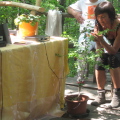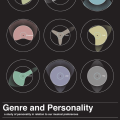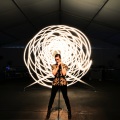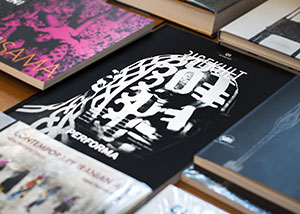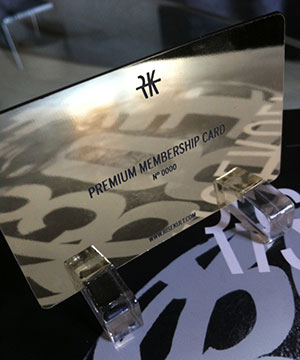Science and art, physics and music, come together and come alive in one place. You know where.
We’re here today not just because people like synths, or electronic music, or even music itself, but because the advancement of technology depends on kids learning about science and math.
That was certainly the history of Bob Moog himself. What he got as a student opened up the doors to the knowledge and interests that gave the world Moog synthesizers. Dr. Moog himself long credited his education – as a youngster at Bronx High School of Science in New York City, studying physics at Queens College, Colombia, and Cornell, and even making kit Theremins and discovering electronics – for what would come. Look to any other synth pioneer, or modern inventor or software developer, and you’ll find a similar story.
That’s not to say we need to turn the entire population of the planet into synth builders. But what music technologists do inspires science just as science inspires music. A lot of the young boys and girls who played with Theremins – or, later, Moog synths – went on to advancements in everything from space exploration to medicine. People accomplished amazing things motivated in part by the politics of the Cold War. Imagine what we could do motivated by the desire to do new things – and make new sounds.
All of this makes the mission of the Moog Foundation vitally important. Led by Bob Moog’s daughter Michelle and an elite crack team of synth experts, they’ve already begun reaching kids in schools around Asheville, North Carolina and Jamaica. They’re using synths as a window into science and physics. (Waves underly huge amounts of the universe, and it’s tough to find a better way to understand those waves than playing an electronic musical instrument.)
A funding drive to take this local project national is about to run out of time, and it’s well short of its funding goal. So now’s a great time to look at the project and consider giving even a small amount of support.
You’ve got only a little time left: at the end of Thursday March 1, just before midnight, Eastern time, this fund drive is over.
There are two important things you should know.
First, the Moog Foundation is not associated with Moog Music, the private company started by Bob that makes products like the Voyager and Moogerfooger. The Moog Foundation is entirely independent, and not-for-profit. Science (science!), not selling Moogs, is their mission, and they’re driven by your support – not sales of gear.
Second, since it’s awesome to get swag along with your feelings of good will and acheivement, yes, we’re going public TV/radio fund drive here and telling you that you’re going to get some excellent stuff to commemerate your contribution and fill your studio (or the bumper of your car, if you’ve got one) with synth love.
Among the prizes, pictured here: a Moog Voyager Select Series Synthesizer signed by Moog-inspired artists including Brian Eno, Moby, Wayne Coyne, Edgar Froese, Passion Pit, Chromeo, Ghostland Obervatory and many other bands who performed at Moogfest 2011. The Moog Foundation says donors can also win a VIP weekend for two to Moogfest 2012 featuring a stay at the breathtaking Grove Park Inn Resort & Spa in Asheville, NC and a pair of VIP tickets to Moogfest 2012.
Yes, that’s Brian Eno’s John Hancock. Yes, you can win this. (If you don’t like playing with chance, there are also lots of thank-you gifts at all funding levels, even for those of us with just pocket change to share.)
But those nice bonuses aside, I think it’s worth noting that the entire impetus for the project came out of an outpouring of letters and support following Bob Moog’s death. It’s something we saw at CDM, and it’s fantastic to see out of what was initially grief, something new blossoming.
















